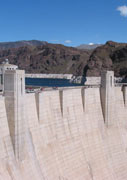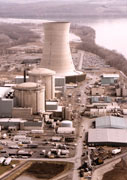Program on Science, Technology and Society at HarvardHarvard Kennedy School of Government | Harvard University |
||||||||
|
|

NSF Summary and ProposalSociotechnical Imaginaries and Science and Technology Policy: Supported by NSF Award No. SES-0724133 (awarded September 2007) This two-year, interdisciplinary, comparative project, grounded in the field of science and technology studies (STS), aims to develop a new theoretical framework for understanding of the global politics of science and technology (S&T). It will examine the relationship between national political cultures and the production of sociotechnical imaginaries in S&T policymaking in the United States, South Korea, and Germany. Sociotechnical imaginaries are defined, for purposes of this project, as “imagined forms of social life and social order that center on the development or fulfillment of innovative scientific and/or technological projects.” Through systematic cross-national comparison, the project hopes to illuminate how three different democratic political cultures are framing the goals, risks, and benefits of technological innovation, and how they are meeting the associated political challenges of democratic inclusion, ethics, and accountability. Sociotechnical imaginaries are at once descriptive of attainable futures and prescriptive of the kinds of futures that ought to be attained. As an influential part of the currency of contemporary politics, these imaginaries have the power to shape technological design, channel public expenditures, and justify the inclusion or exclusion of citizens with respect to the presumed benefits of technological progress. Given the globalization of S&T, the political salience of such imaginaries, and the risks and instabilities that inevitably accompany their realization, understanding how they are formed and implemented is necessary to any serious exploration of what the sociologist Ulrich Beck has called a “cosmopolitan” vision of intercultural coexistence. Phase I of the project will develop nine national case studies, focusing on three specific technologies: nuclear power, stem cells and cloning, and nanotechnology. This design will provide historical depth as well as contemporary insight into national technoscientific imaginations. Phase II of the study will analyze these cases along several dimensions, including the treatment of national needs, solidarity, temporality, competitiveness, and risks and benefits. The research with use qualitative STS methods, integrating approaches from the fields of policy analysis, law, anthropology, and history of science. The proposed study of sociotechnical imaginaries will advance our theoretical understanding of contemporary S&T developments by shedding light on the following issues:
By analyzing S&T policymaking in three nations as sites of democratic as well as technical experimentation, the project promises to have two kinds of broader impacts. First, it will improve cross-cultural understanding of the global politics of S&T, thereby building stronger foundations for transnational cooperation and governance. Second, the proposed research will provide new conceptual and empirical resources that can be used to improve S&T policy analysis and implementation, specifically: in assessing the risks and benefits of new and emerging technologies; in standard-setting and the treatment of uncertainty; in the design of new forms of public engagement; in developing new processes of ethical analysis and deliberation; and in highlighting opportunities for and possible modes of international S&T collaboration. Download the full text of the proposal here. |
|||||||



